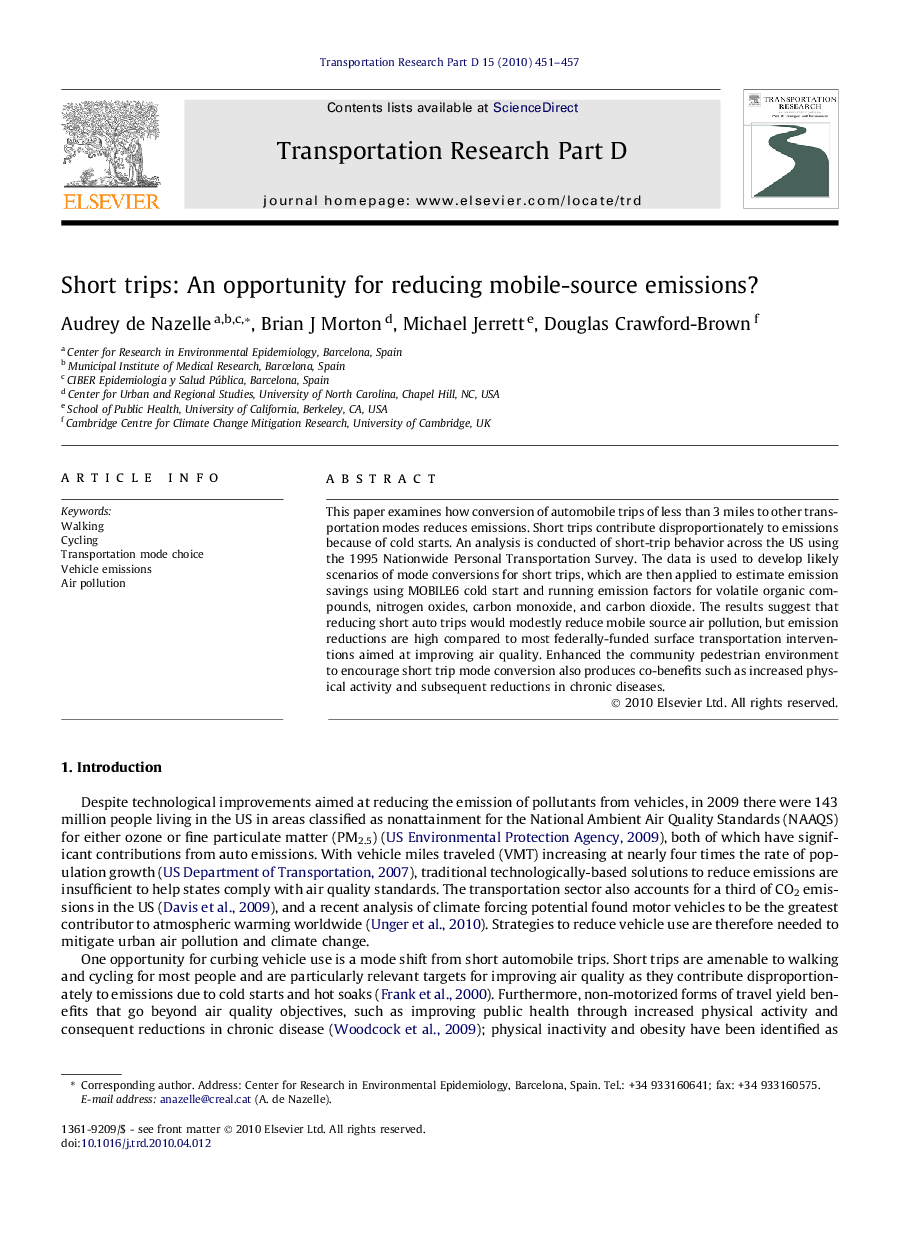| Article ID | Journal | Published Year | Pages | File Type |
|---|---|---|---|---|
| 1066129 | Transportation Research Part D: Transport and Environment | 2010 | 7 Pages |
This paper examines how conversion of automobile trips of less than 3 miles to other transportation modes reduces emissions. Short trips contribute disproportionately to emissions because of cold starts. An analysis is conducted of short-trip behavior across the US using the 1995 Nationwide Personal Transportation Survey. The data is used to develop likely scenarios of mode conversions for short trips, which are then applied to estimate emission savings using MOBILE6 cold start and running emission factors for volatile organic compounds, nitrogen oxides, carbon monoxide, and carbon dioxide. The results suggest that reducing short auto trips would modestly reduce mobile source air pollution, but emission reductions are high compared to most federally-funded surface transportation interventions aimed at improving air quality. Enhanced the community pedestrian environment to encourage short trip mode conversion also produces co-benefits such as increased physical activity and subsequent reductions in chronic diseases.
